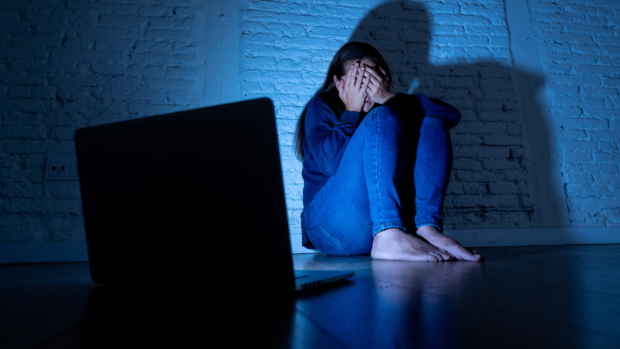MANILA, Philippines–As the world becomes increasingly interconnected, a new battlefront has emerged: digital violence against women.
To combat this modern-day scourge, the United Nations Population Fund (UNFPA) has launched the Bodyright campaign in the Philippines, using a new ‘copyright’ symbol as a call to action for policymakers, technology companies, and social media platforms to take online misogyny and image-based abuse as seriously as they take copyright infringement.
“Violence in digital spaces is rampant, with women and girls being disproportionately attacked, and its consequences frequently spill over into the real world,” said Dr. Leila Saiji Joudane, UNFPA Philippine Country Director, during the campaign launch.
Joudane stressed that while the internet and technology have presented numerous opportunities for people to connect and access information, they have also given rise to harm and violence against women, children, and members of the LGBTQIA+ community.
The Bodyright campaign aims to empower women and vulnerable groups to take control of their bodies and how they are represented online, particularly at a time when online harassment and sexual exploitation are widespread.
It encourages civil society, supporters, and the general public to promote the safe, ethical use of technology and develop concrete actions to end online violence.
“Bodyright is about everyone’s fundamental right to choose what they do with their bodies – including how they are portrayed online,” Joudane added.
On the campaign website, people can show their support by signing a petition and affixing the Bodyright logo or ⓑ symbol on their photos to “own” their bodies online and “claim their bodyright.”
The launch of the campaign featured messages of support from various organizations, including ACCORD Incorporated and the Coalition Against Trafficking in Women – Asia Pacific (CATW-AP).
“We support UNFPA’s Bodyright campaign, which promotes the empowerment of women and other vulnerable groups to take control of their own bodies,” said CATW-AP executive director Jean Enriquez.
The launch also included performances from young artists and a spoken word poetry presentation by youth from Bangsamoro Autonomous Region in Muslim Mindanao. The performers tackled gender-based violence, cyberbullying, and other forms of violence against women and girls, as well as the unique challenges faced by women in the region.
Participants of the event called “Take Back the Web: A night of creative expression about women & girls’ lives, rights and bodily autonomy” posed with their “b tattoos” or stickers of the Bodyright logo. At the end of the event, members of youth groups Perxx Commune and Pandi Empowered Survivors – Youth read the Bodyright petition and led its ceremonial signing.
The Bodyright campaign is timely as research indicates that online violence against women is widespread.
According to the Economist Intelligence Unit, 85% of women globally with access to the internet reported witnessing online violence against other women, and 38% experienced it personally.
In the Philippines, the Foundation for Media Alternatives (FMA) reported that the most prevalent cases of online gender-based violence in 2021 are non-consensual distribution of intimate images (48.00%), threats of violence or blackmail (41.33%), and deleting, changing, or faking personal data (22.67%).
“When you upload a video online using someone else’s song, some websites can immediately flag your video for copyright infringement,” Joudane said. “But when a woman’s intimate photos make their way online without her consent, it is very hard to have the images removed from the internet.”
RELATED STORY
When women lead
